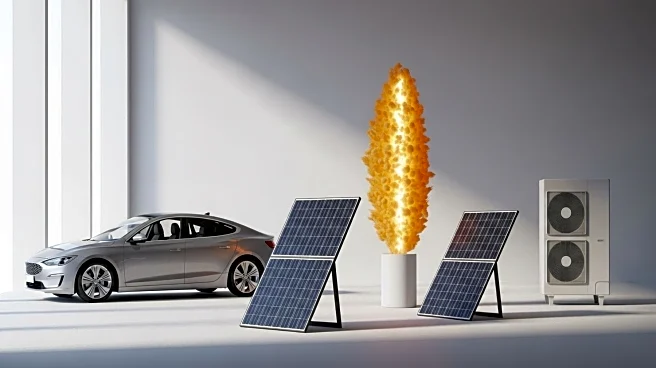What is the story about?
What's Happening?
A report highlights how economic inequality in the U.S. affects the adoption of electric vehicles (EVs), solar panels, and heat pumps. The top 10% of American households account for half of all consumer spending, skewing the market towards affluent buyers. This disparity limits access to clean energy technologies for lower-income households, who face barriers such as high upfront costs and limited incentives. The report calls for policies that broaden access and support equitable adoption to ensure a resilient clean energy transition.
Why It's Important?
The concentration of clean energy adoption among affluent households poses challenges for achieving widespread decarbonization. Without targeted subsidies and programs, technologies like EVs and solar panels may remain inaccessible to the majority, hindering efforts to reduce carbon emissions. Addressing inequality is crucial for building a sustainable energy economy that benefits all segments of society. Policymakers must consider the social and economic implications of current incentives and work towards inclusive solutions.
Beyond the Headlines
The report suggests that the current fiscal policies exacerbate income and wealth inequality, potentially leading to political backlash against clean energy initiatives. Historical examples show that unchecked inequality can lead to social unrest and policy shifts. Ensuring equitable access to clean energy technologies is not only a matter of environmental sustainability but also social justice, requiring comprehensive reform to avoid future disruptions.














